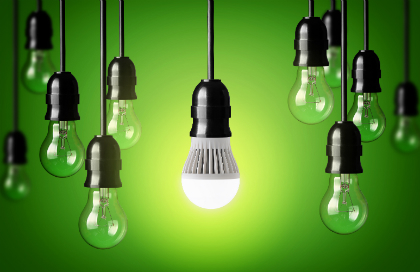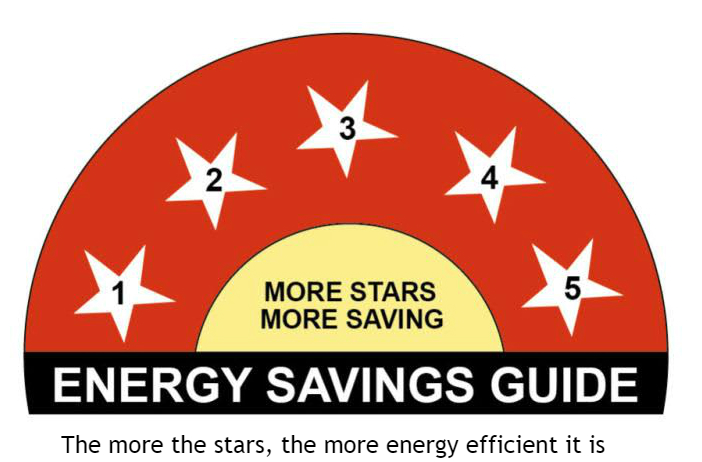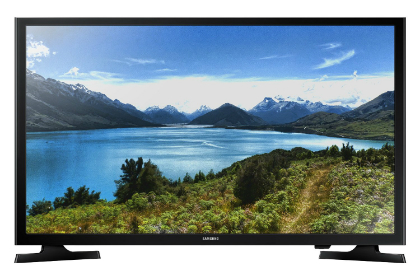Last Updated on May 19, 2021 by Rupesh Patil
Is your electricity bill shooting up year on year, especially during peak summer and winters? If yes, you’re not alone. Most of us think that just switching off lights and fans and unplugging home appliances when not in use is enough to cut down on the bill, but that’s not true. To stop your bill from climbing up, follow these simple tips…
Switch to LED Bulbs
LEDs are the latest and most efficient lighting option available today. They last long with a life of over 10-25 years and consume 50% less electricity as compared to CFLs. They currently cost more than CFLs but the good part is that prices fall every year and are expected to drop further. They’re known to be energy efficient because 95% of the energy in LEDs is converted into light and only 5% is wasted as heat.
Subscribe to Onsitego
Get the latest technology news, reviews, and opinions on tech products right into your inboxBuy Energy Efficient Appliances
Always look for Energy star-certified appliances, as they save energy, especially when it comes to large appliances. If you have a defective or old heater or air conditioner, get rid of it! They consume very high energy. Go for the quartz or infrared heaters in winter, instead of the ones that have a traditional heating element. Also, unplug all appliances at home when not in use. Some large appliances like TV, Fridge, DVD Players, computers, etc consume power even when they’re switched off. Yes, some appliances never actually turn off. They continue to consume power in a standby power mode. So make it a habit to unplug them when not in use, to save your money.
Keep Your Fridge Stocked
Buy one as per your needs. If yours is a big family, it makes sense to buy a big fridge, else stick to a medium size. When the fridge and freezer are stocked, it works less because it prevents air from circulating and consumes less energy. Remember, the harder your fridge works the more electricity it’s consuming. So try and avoid opening the fridge/freezer several times a day. Every time you do that, it has to produce more cool air and that can prove to be expensive over time.
Wash Clothes in Cold water
A common myth is that clothes can be washed properly only in hot water, which is not true. In fact, it’s said that almost 90% of the energy consumed by a washing machine goes to heating water. Switching from hot water to cold water for washing clothes saves that energy. So select the cold feature on your washer (if you have one) for four out of five loads a month. Also, try to air dry your clothes instead of drying them in the washing machine.
Get a LED TV
If you’re using a Plasma or an LCD, it’s time to get rid of it and purchase an LED TV. Not only does a LED have a better image quality but because Plasma TV and LCD use much more power. No matter how big your room is, it’s better to stick to a 32-inch. It’s good enough because a 32-inch LED uses about half the energy of a 60 incher. Not to forget, light output is the largest factor in how much power the TV uses. So try turning down the backlight or put it on the power-saver mode.
Maintain the Temperature of Your Air Conditioner
It’s best to keep air conditioners in energy-saving mode because if the temperature is too low, it will waste a lot of energy. Keep the AC shaded so that it’s not exposed to direct sunlight. Also, make sure you keep the room tightly sealed to keep the room chilled. Insulate your windows so that your cooling or heating appliances don’t have to work hard to keep the room at the required temperature.
If you’re staying in your own built-up house, and have space and money, think about becoming a net provider of electricity. That ways you can not only save electricity cost in the long run, but possibly provide electricity to the grid and make money off your investment! Companies like Su-kam and Tata have solar solutions to help you out with this. Visit indiagoessolar.com to check if solar energy is a good investment for you.









Discussion about this post